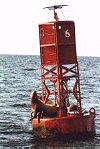 ALYESKA FINDS HARASSMENT OF WHISTLE-BLOWERS PERSISTS
ALYESKA FINDS HARASSMENT OF WHISTLE-BLOWERS PERSISTS
September 22, 1999
Jim Carlton, The Wall Street Journal
The Alyeska Pipeline Service Co. says it has found that internal problems,
including harassment and intimidation of whistle-blowers who point out
problems in its pipeline operations, persist despite the organization's
efforts to remake itself.
The candid admissions are contained in a 225-page report by the company
that is expected to be made public today. The report addresses recent
whistle-blower complaints concerning safety and other problems in the
800-mile Trans Alaska Pipeline. The report affirms many other allegations
by the whistle-blowers, including inadequate controls over quality and
technical drawings, as well as tardy responses by managers.
In statements in the past few days to Congress, administration officials
and Alyeska employees, Bob Malone, president and chief executive officer,
vowed immediate corrective actions, including dismissal of anyone who
continues to obstruct Alyeska's goal of becoming more open.
"I have come to understand that individual employees are struggling with
behaviors opposed to the direction I have set," Mr. Malone said in a
letter to Sylvia Baca, the Interior Department assistant secretary
overseeing the pipeline for the administration. "I will not tolerate it."
Administration officials said they were inclined to give Mr. Malone, who
three years ago became the latest in a long line of Alyeska presidents,
some leeway to continue trying to change the company's old culture of
resistance to criticism and change. They said they have found no evidence
to dispute Mr. Malone's assertion that the pipeline is in no imminent
danger, despite the personnel problems.
"There is a whole different attitude there with Malone," said Marilyn
Heiman, special assistant for Alaska to Interior Secretary Bruce Babbitt.
"I think there are serious concerns we need to raise every day on the
pipeline, but I feel better knowing Bob Malone is there and I can pick up
the phone."
Alyeska is owned by Exxon Corp., BP Amoco, Atlantic Richfield Co. and
other companies that run Alaska's North Slope field. Although the
22-year-old pipeline it manages has never been hit with a catastrophic
spill, Alyeska has come under sharp scrutiny following the Exxon Valdez's
disastrous spill of crude into Alaska's Prince William Sound in 1989.
A government-ordered audit in 1993 uncovered problems such as lax
management, falsified reports and faulty leak-detection. Many of the
problems had been identified by internal whistle-blowers, who were
allegedly dismissed or otherwise retaliated against for stepping forward,
according to complaints they later filed with the Labor Department.
Alyeska in 1994 had settled some of the whistle-blower cases and vowed to
end harassment of workers who pointed out problems. Last year, Mr. Malone
began implementing a new program called the Open Work Environment that
sought to codify Alyeska's commitment to letting workers raise problems and
issues without fear of reprisal.
While Alyeska officials say the program has resulted in some great
successes, they discovered earlier this year that it had not been accepted
in all parts of the organization. In July, six anonymous whistle-blowers
aired a battery of 57 new charges against the pipeline company, alleging,
among other things, dangerous conditions at a new facility to corral toxic
vapors from supertankers docked at the marine terminal in Valdez, Alaska.
The six people, who identified themselves as Alyeska middle managers with
at least 10 years of pipeline experience each, sent a letter containing
the allegations to a former oil and tanker broker named Chuck Hamel, who
has been used as a conduit for Alyeska whistle-blower complaints in the
past. After Mr. Hamel publicized the charges, Mr. Malone ordered an
in-house report of them by Little Harbor Consultants Inc., which has been
retained to help transform the corporate culture.
The report found that while most allegations had been made known to
Alyeska managers, "the collective significance of those concerns was lost
during the daily focus on operation of [the pipeline]."
For example, the report found that workers' willingness to come forward
was compromised by the fact that three people who followed Alyeska
procedures of anonymously filing complaints had their names inadvertently
disclosed. In one of the cases early this year, the foul-up happened when
an Alyeska investigator provided a company auditor with a document
containing names of some confidential informants, and it was distributed
further.
Another time, the report found, a perception of widespread harassment was
fostered at the Valdez terminal's vapor-recovery system when investigators
took too long to substantiate five intimidation complaints. In one case,
an alleged offending manager had already left the project when the
complaint was substantiated, the report said. "A perception developed that
the project was 'rife' with harassment," the report said.
Finally, the report found that harassment and intimidation problems have
contributed to Alyeska's falling short in other work areas, such as
updates of technical drawings for the aging pipeline.
Mr. Malone, who flew to Washington early this week to present the report
to government officials, has expressed such an intent to end the cultural
problems at Alyeska that he has enlisted many of his company's critics for
help. For example, the lead consultant for Little Harbor Consultants on
this report was Billie Garde, a Washington attorney who previously
represented Alyeska whistle-blowers.
Yesterday evening, Mr. Malone was set to have dinner with one of the
company's most ardent critics: Mr. Hamel, who once was the target of a
private investigation ordered by Alyeska officials. Mr. Hamel has
maintained his pressure on Alyeska, releasing on an Internet site this week
new whistle-blower allegations of problems with the fire-suppression
system at Valdez. Alyeska officials say any such problems don't appear to
constitute a threat to public safety.
---
Problems on the Trans Alaska Pipeline Internal Problems Identified by
Alyeska...
-- Harassment, intimidation and retaliation against whistleblowers
continue to exist in the organization, despite improvements
-- A quality program has not been consistently implemented
-- Alyeska management has not resolved problems in a timely and effective
manner
-- Weaknesses continue in the drawing control system, despite recent
advances ...And Alyeska's Commitment to Resolve Them
-- Future violators of company policy will be told to leave
-- Quality will be overseen by a single manager instead of two
--Additional training resources will be made available to supervisors and
managers to help create a more-open work environment
-- Alyeska is reviewing how to improve control
over drawings, while in the interim establishing a position to oversee
design integrity of the pipeline
Source: Trans Alaska Pipeline System report by Little Harbor Consultants
for Alyeska Pipeline Service Co.
Related Links
Wall Street Journal-- Wall Street Journal Online
BP-Amoco-- BP-Amoco Website
Group of Six-- The "Group of Six" led by Charles Hamel as spokesperson
Alyeska-- Alyeska Pipeline Company Website
|

